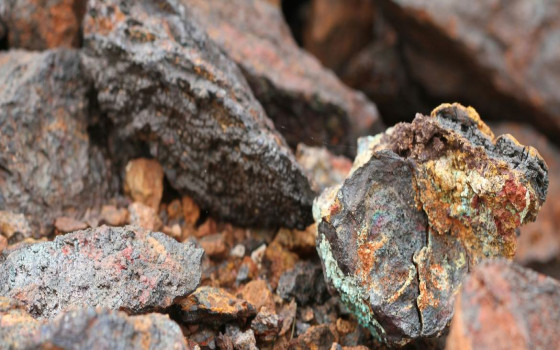
Titled "Providing Resources for the Energy Transition", a UN report on the principles of guiding critical minerals for a fair, just and sustainable energy transition

- Europe and Arabs
- Thursday , 12 September 2024 12:26 PM GMT
New York: Europe and the Arabs
The United Nations Commission on "Critical Minerals for the Energy Transition" issued a set of guidelines and recommendations for governments, industry and other stakeholders to ensure that global energy transition opportunities are pursued in a fair, equitable and sustainable manner.
These guidelines and recommendations came in a report issued by the Commission yesterday, Wednesday, entitled "Resourcing the Energy Transition: Principles for Guiding Critical Minerals for the Energy Transition Towards Equity and Justice."
The report identifies ways to base the renewable energy revolution on justice and equity, so that it stimulates sustainable development, respects people, protects the environment, and enhances prosperity in resource-rich developing countries.
The report puts forward recommendations on equity, transparency, investment, sustainability and human rights, not only where minerals are extracted, but also along the entire value chain of minerals, including refining, manufacturing, transportation and recycling after use.
UN Secretary-General António Guterres said that today's report "is a guide to help generate prosperity and equality alongside clean energy. The report provides recommendations on critical minerals, at a crucial time."
He added that he had asked the co-chairs and the committee to consult and share the report and its recommendations with Member States and other stakeholders ahead of the UN Climate Change Conference (COP29) later this year.
“This committee was created in response to calls from developing countries, amid signs that the energy transition risks reproducing and amplifying the inequalities of the past, relegating developing countries to the bottom of value chains as they watch others grow rich by exploiting their people and endangering their environment,” explained Secretary-General António Guterres.
Turning principles into reality
Ambassador Nozipho Mxakato-Diseko, co-chair of the Committee on Critical Minerals for the Energy Transition, said this was a time when cooperation was crucial for countries to effectively address multiple crises.
“The need for such cooperation, justice, equality and above all development while respecting the core of human rights, is at the heart of the seven proposed guiding principles on critical minerals for the energy transition,” she added.
“I hope that we can now turn these principles and recommendations into reality on the ground,” said Dete Juul Jørgensen, Director-General and Co-Chair of the Commission. “Only in this way will we be able to harness the potential of the energy transition and create new and shared benefits for all.” Key principles and recommendations
The principles set out by the Commission build on existing international standards and the legal commitments already made by governments, and are accompanied by a set of specific, actionable recommendations for everyone to benefit from the opportunities inherent in the renewable energy transition.
The Commission’s recommendations range from the establishment of a UN-based high-level expert advisory group to facilitate multi-stakeholder dialogue and coordination on economic issues in mineral value chains, to a global framework for traceability, transparency and accountability, to the establishment of a fund to address legacy issues resulting from abandoned or ownerless mines, to empowering artisanal and small-scale miners to become agents of transformation to promote development, environmental management and human rights, and to enhance material efficiency and recycling.
Development does not always deliver on promises
The Commission stressed in a press release issued yesterday to coincide with the launch of its report that developing countries with large reserves of minerals vital to the energy transition have the opportunity to transform and diversify their economies, create green jobs, and promote sustainable local development.
But it warned that the development of mineral resources has not always delivered on this promise, stressing that without proper management, the growing demand for these minerals risks perpetuating dependence on basic commodities, exacerbating geopolitical tensions, and posing environmental and social challenges with negative impacts on sustainable development, including livelihoods, the environment, health, human security, and human rights.
The Secretary-General of the United Nations stressed that the United Nations system will work together to support the implementation of the Commission’s work, and to protect and promote human rights, including the rights of indigenous peoples, across the value chain of critical minerals.
He added: “Throughout all of this, civil society, youth, and indigenous peoples must be heard and included in decision-making.”












No Comments Found